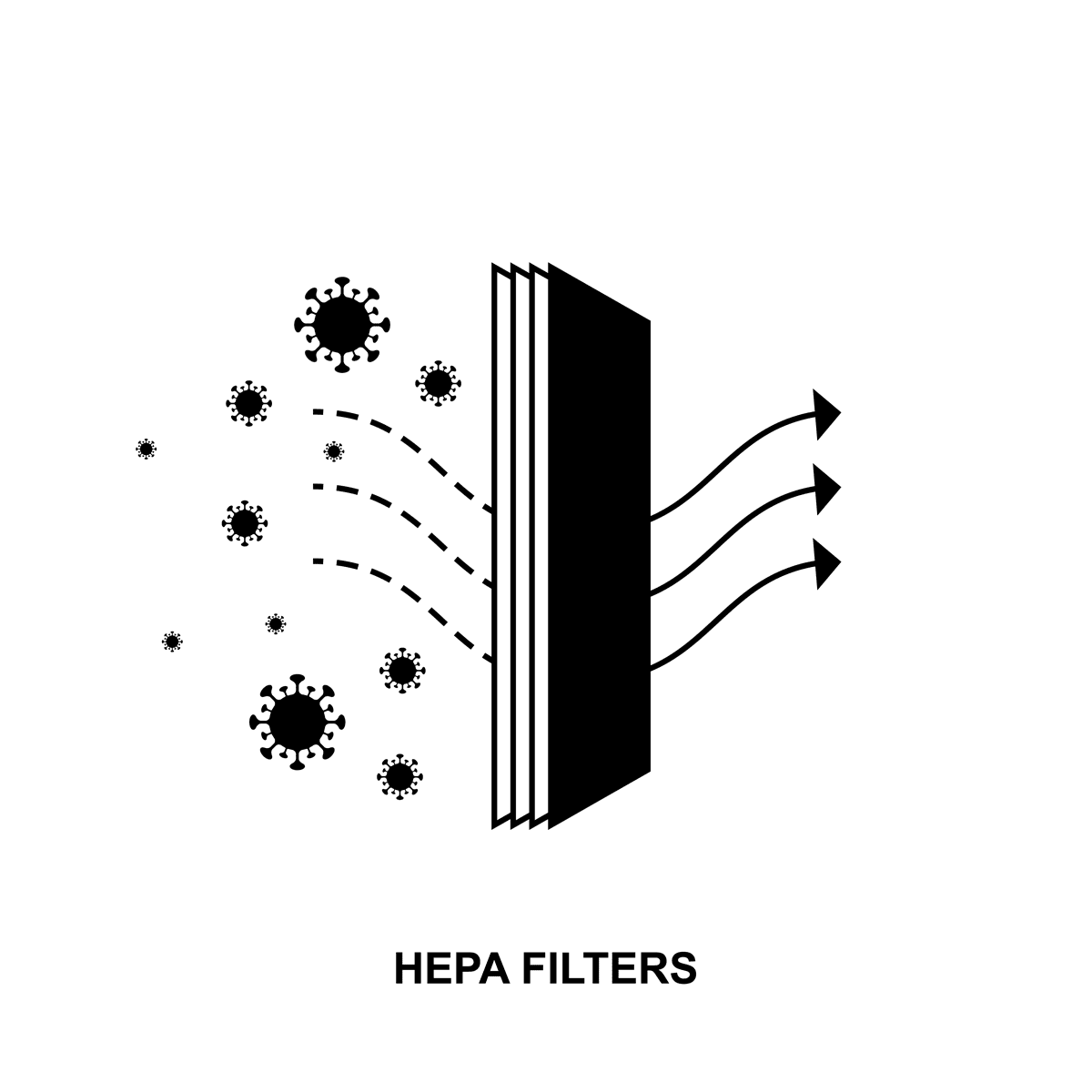

Take a deep breath. Do you know what’s in the air you just inhaled? Left untreated, your indoor air could be carrying a combination of dust mites, mold spores, pollen, pet dander, or other allergens. Fortunately, HEPA air filters can trap these pollutants and help clear the air for everyone. Houston’s Air Specialist can help you find the perfect HEPA air purifier or humidifier for your family and budget.
What does HEPA mean?
HEPA stands for “high-efficiency particulate air.” These filters have been around since the 1940s. A regular air filter is a mat of random fibers around your home’s HVAC unit that captures the nearly invisible gunk clogging our sinuses and reducing our indoor air quality. A HEPA air filter is different in that its pleated design is considerably thicker, denser, and much better at trapping dust, allergens, and other irritants, leaving only clean air behind.
How do HEPA filters work?
It’s tempting to view all air filters as simply fine nets that trap dust and other particulates. But HEPA filters are a little more complex, considering they’re capable of trapping particulates 0.3 microns wide. (For reference, a human hair is 50 microns wide.) The trapping mechanism works on particulates larger than 1 micron, like dust, pollen, or mold. These large particulates can’t get through the HEPA filter, so they get stuck between the fibers and stay away from your family.
In the 0.3 to 1-micron size, smaller particulates could theoretically get through the HEPA filter. But because they’re blown with the air and because they’re heavier than air, they wind up getting stuck in the filter. Most HEPA air filters can remove more than 99% of particulates that are 0.3 microns or larger. Score another point for the HEPA filter for improving air quality!
Can I install a HEPA air filter on my furnace?
As we said above, HEPA air filters are quite effective at trapping dust, mold, bacteria, and other particulates in the air. However, their dense design requires a certain level of air pressure to force air through the filter. Most furnace and air conditioning fans aren’t equipped for that, and the restricted airflow can damage your unit.
How can I enjoy clean air in my home?
Many air purifiers, humidifiers, dehumidifiers, and air scrubbers use HEPA filtration technology. Whole-house air purifiers can purify indoor air as many as eight times an hour, capturing dust, mold, bacteria, and viruses.
Do you have questions about HEPA technology? Would you like to learn more about how a HEPA air purifier or humidifier can clean your indoor air and improve your family’s overall health and well-being? Call the Air Specialist experts at [csad_phone] to find out how HEPA filters will bring a breath of fresh air to your Houston area home.
Post Categories
Why Choose Us?
- We're strategically located in Pearland, TX
- Expertise to service all of your HVAC equipment
- Our technicians are NATE-certified
- We are an ACCA member company
- BBB accredited south Texas HVAC business
- We stand behind all of our HVAC work
